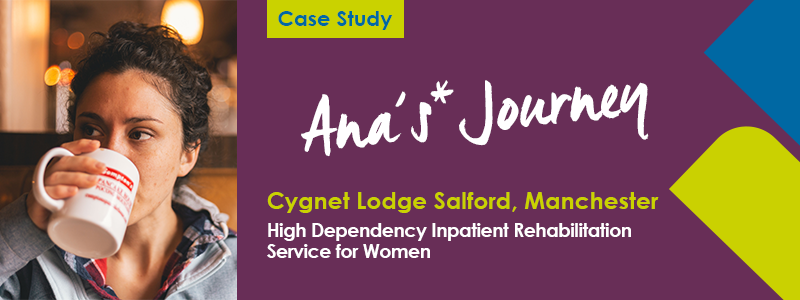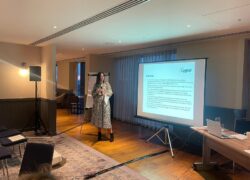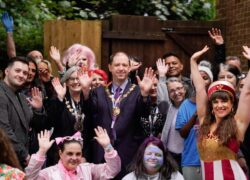
Ana’s* history
Ana had a happy upbringing in her family home, she is extremely bright and performed well at school before continuing on to further and higher education. She completed her degree but after a traumatic incident at university, what had started as recreational drug use quickly became drug and alcohol binges, which were out of control. She engaged in risky behaviour and became vulnerable to others.
After a rapid deterioration in her mental health, she was eventually diagnosed with schizophrenia, placed on a section and spent subsequent years in and out of hospital. After becoming involved with the police, she was admitted to a secure ward. She progressed through the pathway to a rehabilitation service and later moved to Cygnet Lodge Salford.
When Ana came to us
When Ana transferred to Cygnet Lodge Salford she was still experiencing lots of negative symptoms. She had auditory hallucinations, little to no motivation and was socially withdrawn. Her daily living skills had deteriorated to the point where she had poor personal care and difficulty managing her money. Ana was very agitated and had a history of self-harm, she would spend most of her days in bed. It was felt that she may require 24 hour support long term.
Ana’s care
The clinical team at Cygnet Lodge Salford reviewed Ana’s medication and adjusted the dosage to best support her. The multi-disciplinary team (MDT) came together to assess her needs, they established her levels of functioning and at the time these were low. The team worked with her to formulate a holistic treatment plan that incorporated her interests and strengths.
Upon establishing a routine from her care plan, Ana’s personal care improved quickly and she started to take pride in her appearance again. She followed an individualised activity timetable which gave her some structure and consistency whilst she settled in.
The occupational therapy (OT) team supported her to regain her daily living skills, such as cooking her meals and keeping her room tidy. With her confidence building and her motivation improved, she took responsibility for keeping to her timetable and routine.
As time went on, Ana was not only engaging in the planned activities but also showing an interest in leading sessions for others. She loved to exercise and started a weekly class for her peers to join, she led mindfulness and meditation groups and would often bake for others. Being able to use her skills and support others gave her a renewed sense of purpose and achievement, and the team were able to offer Ana paid work as part of their therapeutic earnings programme. In turn, this also helped her to improve her money management skills.
The psychology team ran 1:1 and group therapy sessions which Ana attended, they looked at functional behaviour and triggers and worked with Ana to identify coping mechanisms. As she progressed they were able to focus more on relapse prevention and keeping well to prepare her for more independent living.
With Ana continuing to make progress the team agreed a graded exposure discharge plan. Before finalising a placement, the team took her to meet other residents and staff and explored the surrounding area with her to identify local resources, such as pharmacy’s, GP and bus routes. With structure and routine being key to Ana’s progress, they also sourced a local community centre with a timetable of classes for Ana to choose from.
Ana today
Ana is now leading a happy and fulfilled life at a supported living accommodation. She is extremely productive and takes time for her own self-care, utilising the support and advice of staff when she needs it. Her confidence and skills continue to grow and she now plans her own time, engages in her interests and continues to lead classes for other residents living on site. A move to her own place living independently is just over the horizon for Ana.
*Name has been changed to protect her identity.




